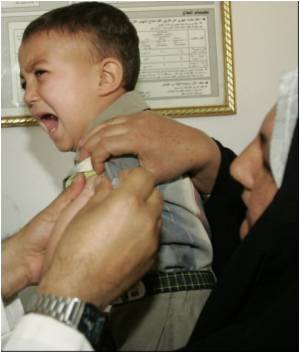More than 800 people in Britain have been diagnosed with measles with experts fearing a massive outbreak in the country.

Between 1996 and 2012 an average of 550 people contracted the disease each year in Britain, according to Health Protection Agency (HPA) figures.
Last year, there were 2,030 reported cases, a near-20-year high, and this latest epidemic has already infected 808 people.
Health officials pointed the finger at disgraced doctor Andrew Wakefield's 1998 report, which appeared in prestigious medical journal The Lancet, that linked the joint measles, mumps and rubella jab (MMR) with autism.
Many parents decided not to have their children immunised as a result.
"Children are going to get measles, there is no question, because there is a great big group -- probably of the order of approaching two million children -- who are susceptible who have not been immunised." said doctor Helen Bedford, from the UCL Institute of Child Health.
Advertisement
The government urged parents to vaccinate their children.
Advertisement
"But it's just, I think, very clear evidence of the huge importance of vaccination."
"It was and has been one of the major interventions in public health and it's absolutely vital that people vaccinate their children."
Measles is a highly contagious virus which can cause serious complications in around one in 15 cases, leading to deafness, brain damage and even death.
However, two doses of the MMR vaccine offer almost guaranteed protection against the disease. Vaccination levels in Britain are now at a high of around 88 percent, according to Public Health England.
Wakefield is barred from practising in Britain after a panel ruled that he had "failed in his duties as a responsible consultant" in his published research.
The Lancet fully retracted the study and noted that some of the report had been falsified.
Source-AFP










